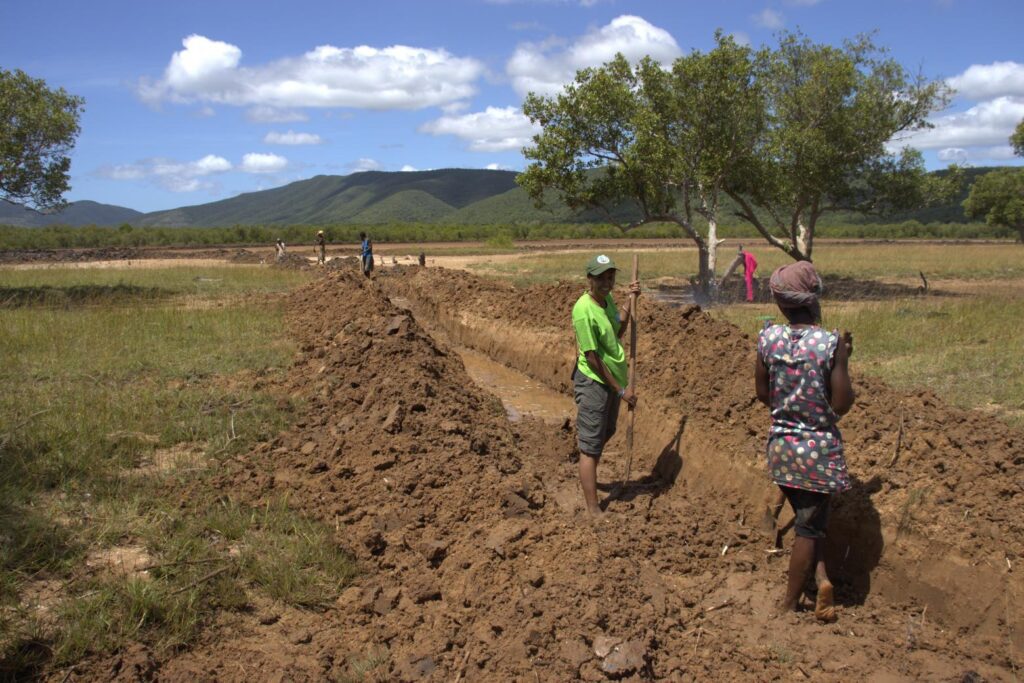
Community-Based and Assisted Natural Mangrove Restoration
Mangroves are uniquely valuable coastal wetlands forming the natural transition zone between land and sea. They are preserving biodiversity, mitigating against climate change and sustaining livelihoods. However, they are globally degraded and are therefore a priority for ecosystem restoration.
Madagascar contains Africa’s fourth largest extent of mangroves with various species providing critical ecosystem goods and services to coastal communities and supporting rich biodiversity. Unfortunately, Madagascar’s mangroves are being rapidly degraded and, in some areas, completely deforested.
The Global Project Forests4Future (F4F), launched by the Deutsche Gesellschaft für Internationale Zusammenarbeit (GIZ), uses a low-cost Community-Based and Assisted Natural Mangrove Restoration method in the Diana region (Madagascar) to restore degraded mangrove ecosystems. This technique allows tidal currents and seedling (propagule) establishment in more inland located and degraded mangrove ecosystems using excavated water channels.

